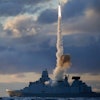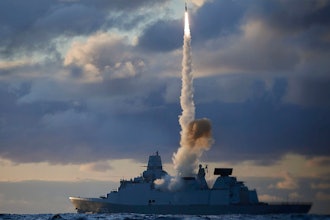Radio frequency identification (RFID) tags are everywhere. In passports, libraries, toll-road payment systems, inventories; even in some humans and animals.
And now a new RFID system is making its way into the oil field products industry. Closed-loop RFID systems allow automated and transparent record keeping, which aims to help users minimize mistakes while speeding up the typically tedious tracking process.
Houston-based Tejas Tubular Products Inc. — an oil field pipe, tubing and casing manufacturer — recently integrated the technology into their operation and is hoping to establish itself as an industry leader with their “pioneering” closed-loop asset management system.
“It is pioneering in the sense that it is providing a level of visibility and quality control within the oil field products industry that is elevating the production quality. The technology that Tejas Tubular is moving forward with are engaged deployments … that are developed to address specific pain points of the industry today,” said Konrad Konarski, director of alliances for Ship2Save, the RFID solutions company that developed and installed Tejas’ closed-loop system.
“In rigorous manufacturing environments like Tejas Tubular’s, barcode and other automatic data collection methods more often than not fail,” Konarski said in explaining why closed-loop asset management systems are especially beneficial to industrial manufacturers.
He said barcode scanners weren’t an option for Tejas because dust accumulation and small metal particles can hamper the reliability of some products. High workflow levels also call for more sophisticated tracking systems. One of the challenges of implementing an RFID system is making sure the tag’s adhesive could handle high humidity levels in the industrial environment.
Open-loop RFID systems, like the systems in place at Wal-Mart and the Department of Defense (DOD), garnered awareness for RFID systems. However, the closed-loop system at Tejas means a single company can manage the entire RFID process from start to finish, said Chris Schaefer, director of RFID product marketing for Motorola. The closed-loop systems will be an area of high growth for RFID systems, he predicted.
While Tejas Tubular operates on a different system than Wal-Mart and DOD, they use the same Motorola tracking devices. The system’s tags operate without their own internal power source, using the electromagnetic field generated from a read-point to initiate and communicate back their identification.
Closed-loop asset management systems allow companies to manage the RFID process from start to finish. By putting such a system in place, companies can “ensure that the right item is in the right place at the right time — reducing production and shipping errors, eliminating waste, and improving cycle times,” Schaefer said.
“Product traceability is a cornerstone of our quality system. RFID technology is a tremendous tool for us in this area. This is our first exposure to this technology, and we are already exploring other applications which will allow us to continue in a leadership position in our industry,” said Maximo Tejeda, president of Tejas.
Micah McBride, technology director at Tejas, said the process of documenting the company’s products has been made easier with the implementation of the closed-loop asset management system.
“We are able to have better visibility of our production process. This visibility allows us to have a more accurate depiction of inventory movement; therefore, the processes of locating and transferring products are much more organized,” McBride said.
The closed-loop system has enabled Tejas to automate processes like product location and transfer, which McBride said gives employees the opportunity to make more timely decisions and have a greater control of overall operations.
RFID scanners display information and product movement on a “visibility dashboard” — a screen in the sales office that provides real-time updates. Floor workers also get feedback via mobile computers, including validation of orders and location information.
The asset management system is also designed to provide product history that can be used to verify work flow and allow quick traceability retrieval and of any product in a work order.
The American Petroleum Institute requires manufacturers in the petroleum industry to provide a documented history for each product. The requirements provide companies with a guideline because such documentation is critical to oil field product manufacturing; oil field product failure can cost millions of dollars, Konarski said. The standards are demanding but necessary to keep drill pipe, tubing and casing products operational in harsh environments.
The closed-loop RFID system is important in helping Tejas Tubular meet those requirements and helps ensure that the right products are shipped to the right customer.
“Recording asset movement can be a very cumbersome activity for the floor workers. It is important to allow business to continue as is while documenting and validating this movement. No other data-capture technology can enable this sort of automated tracking the way that RFID can,” Konarski said.
Click on the company name for more information on Tejas Tubular Products, Inc., Ship2Save, and Motorola Enterprise Mobility Solutions.






















